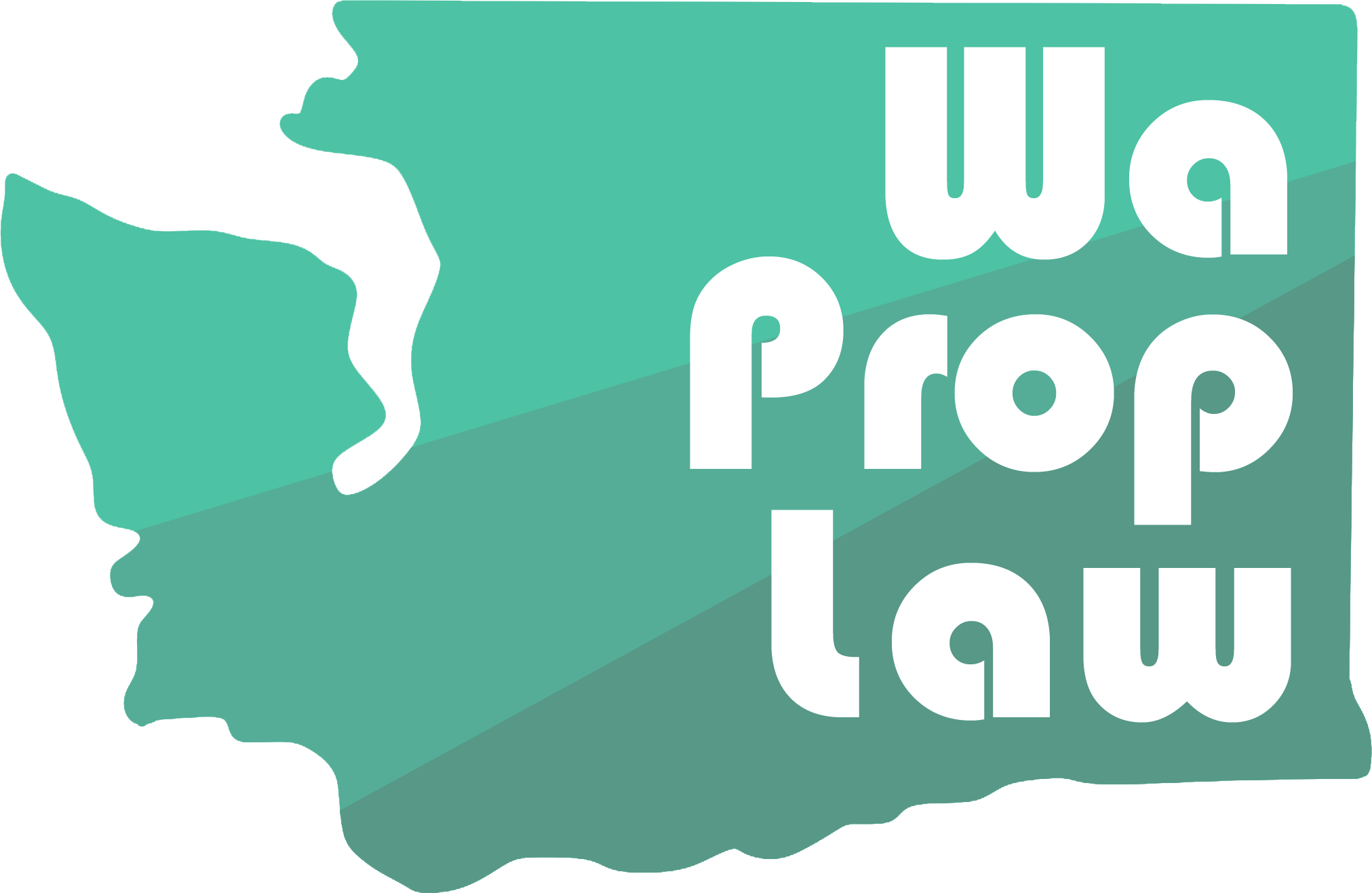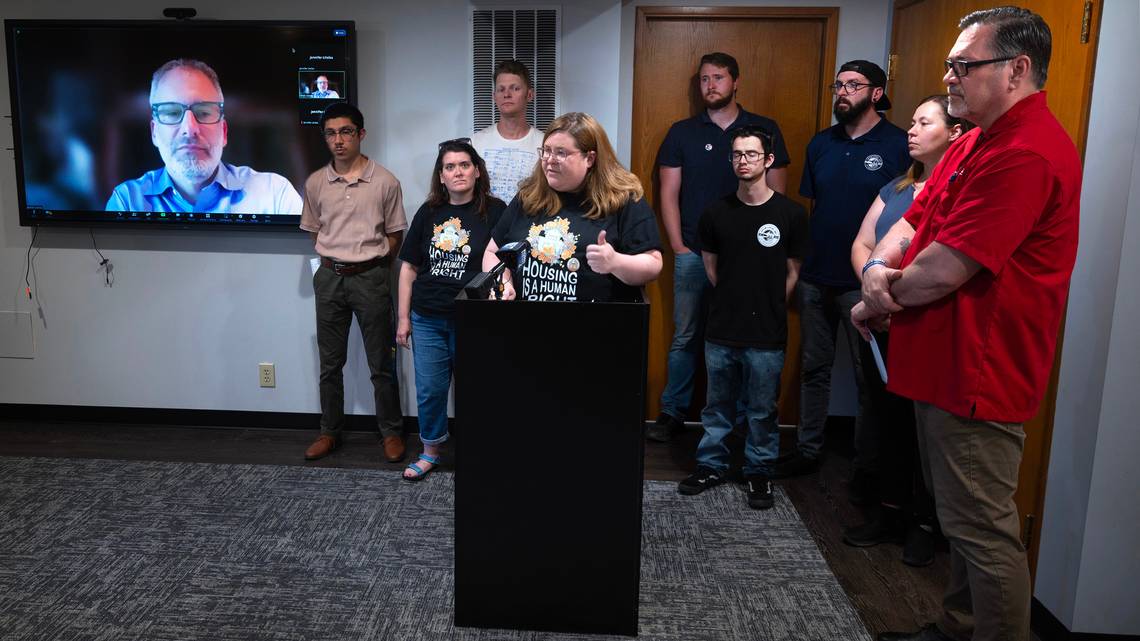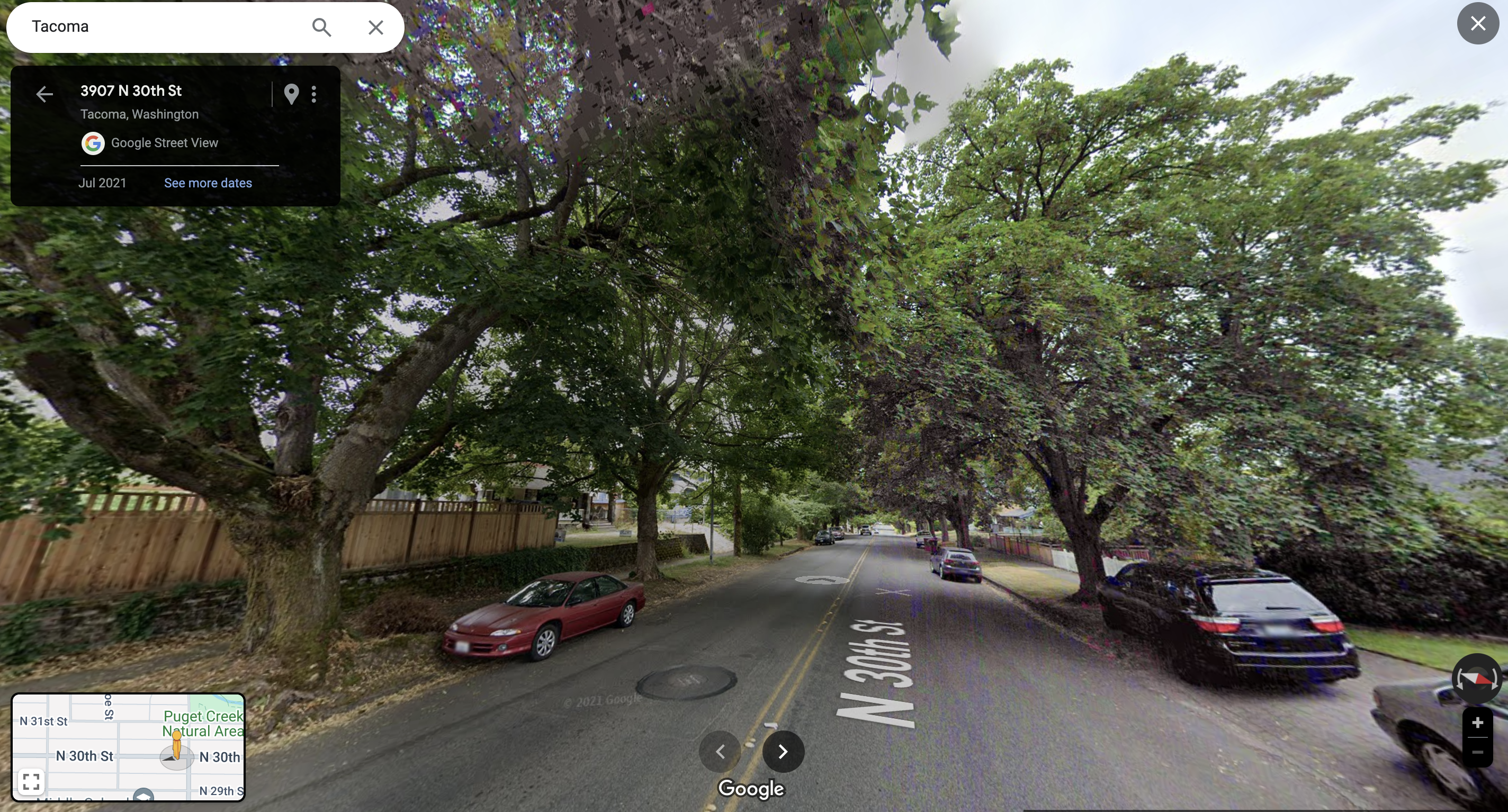For reasons we don’t understand, official Tacoma news outlets have failed to cover the embarrassing story of how a mistake by the Tacoma City Council led to the passage of Tacoma’s “Landlord Fairness Code.” We explain the story here.
What is Tacoma’s “Landlord Fairness Code”?
The “Landlord Fairness Code” is a sweeping pro-tenant ordinance that, among other things:
- Bans evictions during “cold weather” from November 1 through April 1,
- Bans evictions during the school year for tenants loosely associated with the school system,
- Requires landlords to pay tenants two or three months of rent as relocation assistance if the landlord increases rent by 5% or more, and
- Requires landlords to provide six months of notice for rent increases.
If you’re unfamiliar with the details, we’ve written a complete landlord’s guide to the new law.
Suffice to say that Tacoma’s “Landlord Fairness Code” is among the most anti-landlord ordinances anywhere in America (which is why we tend to put the moniker “Landlord Fairness Code,” in quotes). Certain aspects of the new law may even be illegal under existing Washington State court precedent.
How a silly mistake by the Tacoma City Council led to the passage of Tacoma’s “Landlord Fairness Code”
Unfortunately, this story can’t be summed up simply. It requires a little background.
The “Landlord Fairness Code” made it onto the November, 2023 ballot through the citizen initiative process as initiative no. 1. A socialist group known as Tacoma for All drafted it and obtained the approximately 4,000 signatures required to add it to the ballot.
The new law was too radical even for Tacoma’s all-Democrat city council. Their reasoning seemed to be that the “Landlord Fairness Code” is essentially too much of a good thing. It adds over-broad tenant protections that will increase housing prices, squeeze out mom-and-pop landlords, and make it more difficult for tenants who work for the schools or have school-age kids to find housing.
The Tacoma City Council decides to create a competing ballot initiative to steer voters away from the “Landlord Fairness Code” initiative
To avoid the zanier aspects of the “Landlord Fairness Code,” the City Council decided to create a more reasonable ballot initiative that would compete against the “Landlord Fairness Code.” Hopefully voters would go for the council’s moderate alternative.
Notably, creating a competing ballot measure is not a new strategy for moderating citizen initiatives. For example, in 2015, the Tacoma City Council successfully proposed an alternative to a minimum wage citizen initiative, lowering it by $3/hour.
Anyway, the council’s proposed rental code updates were tolerable for landlords but still fairly protective for tenants. We think the council did a competent job of balancing interests. For more details on the council’s code changes, click here.
What spoiled the council’s plan? They committed a fatal procedural error.
To understand the council’s procedural error, it’s important to understand the usual process for proposing a ballot initiative. First, the council drafts the proposed initiative. Then, they pass a resolution submitting the initiative to the citizens. Finally, the citizens vote on whether to enact the initiative. If the majority vote against the initiative (or in favor of a competing initiative) the council’s initiative isn’t enacted (i.e., it fails).
Unfortunately, the council didn’t follow the usual process here. Instead of allowing the citizens to decide on whether to enact the council’s proposed housing code updates, the council voted unanimously to enact the updates themselves on July 11, 2023 (via Ordinance 28894). Then, having already enacted the new law, the council tried to place the law on the November, 2023 ballot so that citizens could choose whether to re-enact the already-enacted law (via Resolution 41328).
This may sound confusing, but the the principle is simple. Everyone knows you can’t eat your cake and have it too. You can’t kill a dead man. You can’t take out your trash to the curb if your husband has already taken it out. There are a multitude of tasks in life that can only be done once, and enacting a new law is among them. In sum: You can only enact a new law once, but the city council tried to do it twice.
So, either the city council could enact the law themselves, or they could submit the law to the citizens for enactment. They could not legally do both.
The socialists sue to remove the city council’s rental housing code updates from the ballot
In early August, 2023, the socialists sued to remove the city council’s rental housing code updates from the ballot, alleging that the council had offered voters a false choice. Long story short, this lawsuit worked. The District Court wrote a thorough decision concluding as follows:
Here, the City passed Amended Resolution 41328 [putting their rental housing code updates on the November, 2023 ballot]. This Resolution proffered the alternative measure (known as Measure 2) to the Citizen Initiative [the “Landlord Fairness Code”] (Measure 1). This alternate ordinance was passed by the City Council and enacted into law. The Amended Resolution provides that if Measure 2 received the majority of votes, it would be repealed and re-enacted, thus remaining a valid, voter-approved law. But if Measure 1 received the majority of votes Measure 2 would fail, meaning that Measure 2 is not repealed, but “would remain in effect as a City Council enacted ordinance.” Amended Resolution 41328 at 3-4. In other words, whether Measure 1 or Measure 2 received more votes, Measure 2 would still be law.
Pursuant to RCW 29A.72.050(4) (the state law addressing citizen initiatives), the ballot presented to the voters would read as follows:
- Should either Measure 1 or Measure 2 be enacted into law?; and
- Regardless of whether you voted yes or no above, if one of these measures is enacted, which one should it be? [Measure 1 or Measure 2].
The problem is that neither the ballot title nor explanatory statements clearly explain that Measure 2 already is law and will remain law regardless of the vote. Moreover, both questions ask whether Measure 2 should be enacted, when it was already enacted by the vote of the City Council.
Plaintiffs argue this is misleading and confusing. The Court agrees. This is really a false choice as it implies that, at most, one proposed measure will be approved. The reality is that Measure 2 was already approved and would remain law regardless, and Measure 1 may also be approved. Plaintiffs argue that this prejudices them because an individual may want both Measures to pass but might slightly favor Measure 2 and vote for Measure 2. But if that person knew that Measure 2 would be law regardless of the vote, that person might vote for Measure 1.
To be clear, this Court is not ascribing bad faith or ill intent to the City Council. The Court does not know the City Council’s motives. But under the Eyman case, the City’s motives are irrelevant to the analysis. The Court concludes that Measure 2 is not a true alternative (because it would be law regardless of the outcome of the vote), and interfere[s] with the ability of the people to declare their position on the basic question originally proposed” by the initiative. Eyman v. Wyman, 191 Wn.2d 581, 605, 424 P.3d 1183, 1196 (2018) quoting Buckley v. Secretary of Commonwealth. 371 Mass. 195, 200, 355 N.E.2d 806 (1976).
As noted above, the Court finds that the City, in theory, had the authority to present an alternate ordinance to the voters. In this Court’s opinion, the presentation of an un-adopted Measure 2 as an alternative to Measure 1 would have complied with Washington law. But when the City adopted that ordinance prior to sending it to the voters and approved the Amended Resolution with the repeal and re-enact language, it resulted in a false choice between Measure 1 and Measure 2 as discussed above, and ran afoul of the State Constitution as described in Eyman v. Wyman.
Full case ruling available for download here.
As much as we dislike the “Landlord Fairness Code,” we have to agree with the court. The City Council made a big and obvious mistake by enacting their housing code changes and then trying to offer the already-enacted law to voters as a false alternative to the “Landlord Fairness Code” initiative.
With no alternative on the ballot, the “Landlord Fairness Code,” passed by a razor-thin margin
In the absence of a more moderate alternative from the city council, the “Landlord Fairness Code,” squeaked into law by a margin of 370 votes (out of 43,436 total votes).
It’s not surprising that the “Landlord Fairness Code” succeeded. Tacoma has a lot more renters than the national average. Around 45% of the homes in Tacoma are tenant-occupied, whereas the national average is around 34%. Additionally, only about 41% of Tacoma landlords live (and vote) in Tacoma, meaning that landlords likely make up less than 18% of Tacoma’s voting population (calculated 45%*41%).
The odd regulatory framework caused by passage of both the “Landlord Fairness Code” and the council’s alternative
By its terms, the “Landlord Fairness Code” doesn’t delete the council’s alternative housing code updates enacted in July, 2023. Therefore, Tacoma landlords need to comply with both codes at once. It’s a bit of a mess.
If you’re a Tacoma landlord trying to understand your duties, you’ll want to read both our article on the council’s July 2023 code updates and our comprehensive guide to the “Landlord Fairness Code.”
Why did the city council enact their rental housing code updates in July instead of allowing the citizens to decide in November?
The socialists’ lawsuit accuses the council of trying to intentionally deceive voters to help the ‘landlord lobby.’ This argument makes no sense. If the council cared more for landlords than tenants, the council wouldn’t have been in such a rush to enact tenant protections in July. Instead, they would have followed the normal procedure and allowed the citizens to vote on the protections in November.
Ultimately, we don’t know exactly why the City Council was in such a hurry to enact these tenant protections early. Perhaps it was due to the fact that several city council members were up for reelection in November and they wanted this on their list of accomplishments to aid in their campaigns.
It is clear, however, that the Tacoma City Council didn’t realize that they were making a procedural mistake here. While the error should have been obvious to anyone with an ounce of common sense, procedural errors aren’t strictly the council’s fault. The real blame lies with the Tacoma City Attorney’s office, which advises the council on procedure.
In another recent article, we broke news of how the city council endorsed a racially restrictive marketing requirement that violates various constitutional and statutory protections (it’s seriously insane). There too, the council lacked common sense, but the deeper problem was that the proposal shouldn’t have made it past the City Attorney’s Office in the first place. These bad choices seem to be a trend. We hope Tacoma hires competent legal counsel soon.
Closing Thoughts
There’s virtually no chance the “Landlord Fairness Code” would have passed if the Tacoma City Council had successfully offered voters a more reasonable alternative. The council’s error changed the lives and businesses of thousands of Tacoma landlords.
Now, the council is stuck with the “Landlord Fairness Code” for at least the next two years pursuant to Section 2.24 of the Tacoma City Charter. Our only hope for relief in the meantime is a legal challenge to the “Landlord Fairness Code,” which may be coming soon. Check out our article on why aspects of the Landlord Fairness Code may be illegal.
For guidance on navigating the new law, check out our complete guide on the “Landlord Fairness Code”. You can check out our other landlord-tenant articles and guides here, and consider joining our email list for regular updates.
Best of luck to you and all our fellow landlords in Tacoma. We hope you manage to weather this storm intact!



